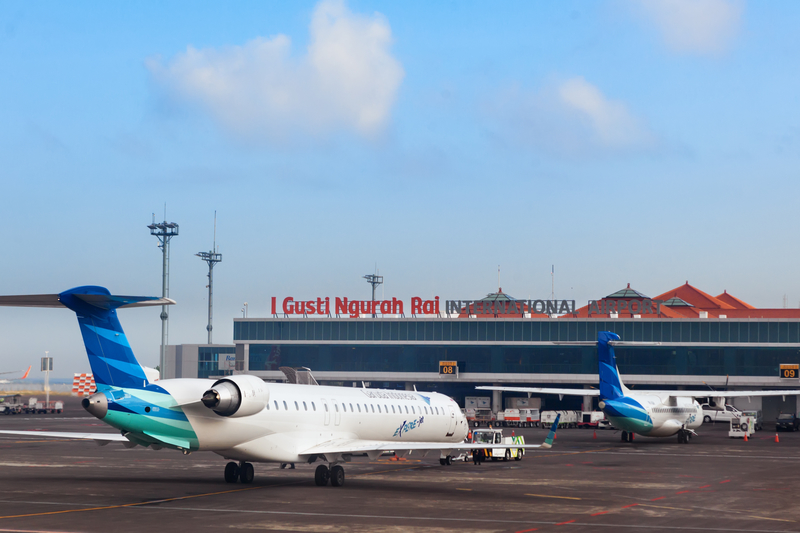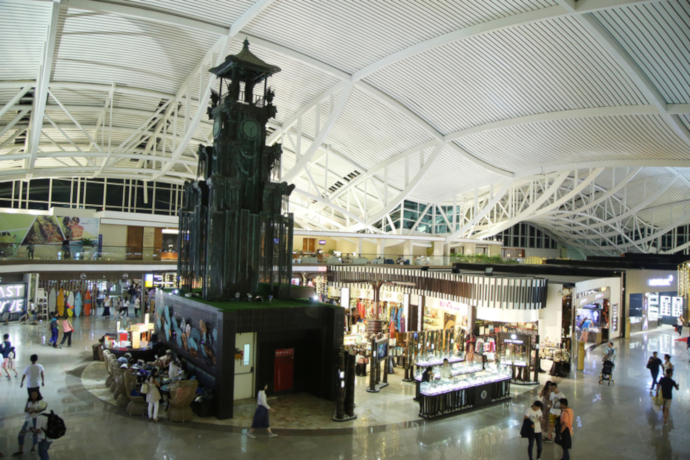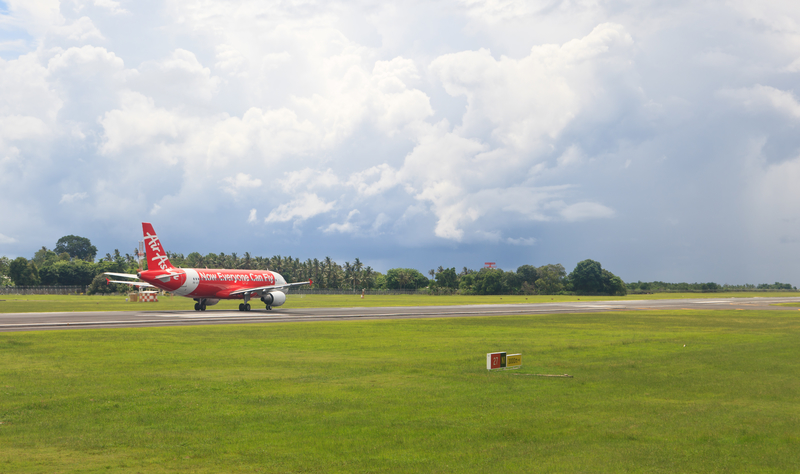Terminals +info
Ngurah Rai International Airport in Denpasar has two terminals: one dedicated to domestic flights and the other serving international arrivals and departures. Both terminals are modern, passenger-friendly, and located within walking distance, separated by Festival Plaza with shops and eateries.
CONTACT:
Address: Jalan Raya, Gusti Ngurah Ra
Bali, 80361, INDONESIA
Phone: +62 361 9351011
Email: humas@angkasapura1.co.id
Reviews +info
On this website, you will find valuable tips and reviews about Bali Airport, designed to help you navigate your travel experience smoothly.
These reviews can help you understand what to expect in terms of service quality, cleanliness, and overall passenger experience.
-Our Review of Bali Denpasar Airport
-Pros and Cons of DPS Airport
-Mini-Guide of the Airport (2’ Guide)
-Other reviews
-Some Stats
Transport +info
Ngurah Rai International Airport (DPS) in Denpasar offers several transportation options for travelers. Official airport taxis provide reliable, metered rides to popular destinations like Kuta and Ubud.
Pre-booked private transfers are available for a more comfortable and hassle-free experience. Budget travelers can use shuttle buses or public buses, which are more affordable but slower. Additionally, ride-hailing apps like Grab operate in Bali, giving visitors convenient alternatives.
Car rentals, with or without drivers, are also popular for exploring the island independently. Overall, DPS ensures easy access to Bali’s main areas through a variety of transport choices.
About Denpasar and Bali
Denpasar is the vibrant capital city of Bali Province, Indonesia, serving as the island’s cultural, administrative, and economic center. It is the largest city in the Lesser Sunda Islands and the second largest in Eastern Indonesia after Makassar. With a population of approximately 726,808 as of mid-2022, Denpasar acts as the main gateway to Bali and a hub for other cities in the region.
Historically, Denpasar was the center of the Badung kingdom and witnessed a significant event in 1906 known as the Puputan, a suicidal battle against Dutch colonial forces, commemorated today by Puputan Square in the city center. The city’s population is predominantly Balinese, practicing a unique blend of Hindu-influenced Islam, with diverse communities including Arab, Indian, Chinese, and Christian residents involved in trade and business.
Denpasar’s economy thrives on tourism, commerce, and industry. The city hosts mechanized industries such as food processing, papermaking, and machinery manufacturing, alongside traditional handicrafts like sandstone carving, weaving, and jewelry making. Tourism is vital, with attractions including white sandy beaches like Sanur Beach, known for calm waters ideal for sunbathing and kitesurfing, and Serangan Island, popular for surfing.
Cultural highlights include the Bali Museum, showcasing Balinese art from prehistoric times to the early 20th century, the Bajra Sandhi Monument, and the Bali Art Centre (Taman Budaya Ardha Chandra). Denpasar’s markets, especially Pasar Badung, offer a bustling scene where visitors can find local handicrafts, batik textiles, pottery, and silverware.
The city’s tropical climate features hot, humid weather year-round with distinct wet (November–April) and dry (May–October) seasons. Denpasar is divided into four districts: West, East, South, and North Denpasar, covering an area of 127.78 km².
Although often overshadowed by Bali’s beach resorts, Denpasar provides an authentic Balinese cultural experience, blending traditional temples, vibrant markets, and modern urban life, making it an essential stop for visitors seeking to explore the island’s rich heritage beyond its famous coastlines.



